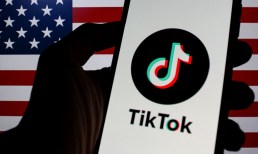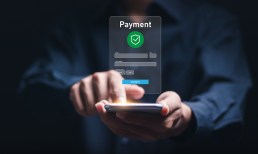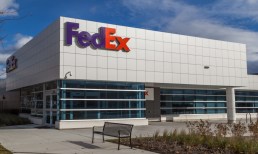The year may be coming to an end, but the payments industry showed that there was still plenty of time in December to forge new partnerships and pursue new endeavors before singing “Auld Lang Syne.”
PayPal announced new collaborations with both Citi and FIS, while Mastercard and Visa shared a mutual commitment to accelerate digital wallet adoption. At the same time, Walmart is using its partnership with Green Dot to find a new way to reward consumers that save rather than spend.
This week’s Data Dive takes a look at some of the promising partnerships on the horizon for those big names in payments and commerce.
PayPal Drives Ubiquity
PayPal took a few giant steps forward to live up to its promise of enabling consumer choice by giving consumers the ability to use their preferred method of payment inside of their PayPal wallet anywhere they’d like to shop — in-store, online and in-app.
The company’s two recently announced partnerships, with credit card issuer Citibank and FinTech firm FIS, are the first two public proof points of its intentions. Both will enable an easy provisioning of PayPal cards via the bank’s mobile app, and both will enable a co-branded experience for the banks.
Advertisement: Scroll to Continue
“What we did with Visa and Mastercard is to give our customers, using these network-branded funding instruments, the ubiquity to use PayPal anywhere they want — in-store, online and in-app — and to have one consistent experience across all of those channels,” Jim Magats, VP of payments product and engineering for PayPal, told Karen Webster before the launch was made public. “These partnerships with Citi and FIS,” he added, “are the first public validations of our commitment to delivering on that promise.”
Magats noted the importance of bringing together all the ways consumers pay, whether it’s one way online, perhaps another way in-app and a totally different way in-store.
The ability to “account link” cardholders from Citi to the 5,800 FIs that are part of the FIS mobile and digital platforms is expected to create more opportunities for PayPal to drive more spend and frequency of use of its app. But the new partnerships are just as advantageous to the banks. Many of whom have struggled to remain visible in a digital world at digital points of sale but lack the ability to “go it alone” given the many challenges of getting acceptance across relevant digital endpoints.
In many ways, Magats said, it levels the playing field for smaller FIs to play alongside their big bank brethren.
“We’re democratizing digital commerce for those banks,” explained Doug Brown, FIS SVP and group executive of mobile strategy and product. He added that the partnership with PayPal will first incorporate two banks under the FIS network and will enable these institutions to gain visibility alongside PayPal when customers check out online.
Mastercard And Visa Tag Team Tokens
The global card networks announced a new agreement that will enable each network to request tokenized credentials from the other when consumers are transacting across any digital medium — in-app, online and in-store.
Beginning in 2017, Mastercard will be able to request tokenized credentials from Visa for provisioning into Masterpass and Visa from Mastercard to provision into Visa Checkout.
In a recent conversation with Karen Webster, Mastercard Group Executive of Platforms and Emerging Payments James Anderson said the effort came about as a result of both networks’ attempts to develop their digital payments platforms — Visa Checkout and Masterpass. And though the two are quite different, Anderson pointed out that there are two commitments that both share.
“Both [Mastercard and Visa] are committed to wallets that are secure — but also open,” Anderson noted. “Each of us has our own objectives around our own wallet, but the general consensus is that, for mobile wallets to really thrive, they have to support multiple modes of use for the consumer, which means they have to be open. The tough part is: Open wallets aren’t really open unless there’s a mechanism to make them interoperable.”
The move was a natural next step as each global network expands access to token requestors via their respective APIs.
It is also, as Visa VP of Digital Solutions Vish Shastry noted, consistent with the many other collaborative efforts that the networks have pursued in the name of open, interoperable payments standards — from mag stripe cards to NFC.
“The analogy that we like to draw is what we did in the physical world. We created NFC and contactless to be more secure, and then, we opened up that platform to let everyone else ride that rail so merchants and consumers have a consistent experience,” Shastry said.
Shastry went on to say that card networks, with their vast issuer and acquirer relationships, can drive such an effort at scale. “We think it benefits everyone to open it up as a common rail.”
Rewarding Spenders And Savers
It’s no secret that U.S. consumers aren’t as financially healthy as one would assume.
In fact, research from the Federal Reserve found that, in the event of an even minor financial emergency — $400 worth of an emergency — almost half of all American adults wouldn’t be able to cover it. Nearly 47 percent would have to sell something, borrow or just not pay at all.
Though most U.S. consumers aren’t saving as much as they should be, look no further than the most recent holiday shopping data to see that they are definitely spending.
In an effort to not just reward shoppers when they make purchases, Walmart, in cooperation with Green Dot, announced the launch of “Prize Savings,” a prize-linked savings incentive program available to the millions of Walmart MoneyCard holders.
“According to the Federal Reserve Board of Governors, nearly half of all U.S. families can’t cover a $400 emergency with their savings. That’s a reality we don’t want our customers to have to live with, and we thought we could help,” Walmart Services Senior Vice President Daniel Eckert noted. “Using our size and scale to take on issues that are affecting our customers is at the core of what we do. Along with Green Dot and Commonwealth, we think ‘Prize Savings’ can help drive change and address an important issue in a new, innovative way.”
MoneyCard users can log into the Walmart MoneyCard app or website to transfer money from their Walmart MoneyCard balance into a separate MoneyCard Vault. The vault is essentially a free savings feature that comes part and parcel with the MoneyCard.
Each dollar a customer saves equals one entry in that month’s national sweepstakes drawing. The top prize each month is $1,000. About 500 total prizes are given out, and the average “win” is around $25.
The winnings are deposited back onto the user’s MoneyCard.
“Millions of Americans have come to the Walmart MoneyCard to get control of their money, avoid overdraft fees and not have to worry about a credit check to get a card,” said Steve Streit, chairman and chief executive officer of Green Dot Corporation. “‘Prize Savings’ introduces an opportunity for these customers to get even better control of their finances, encouraging them to build a safety net to protect themselves when they need some emergency funds and save for the future. By working with Walmart in this effort, we’re giving millions of our customers tools and cash prize motivation to make that happen.”
So, what did we learn this week?
Some of the biggest names in payments are looking to enter the new year with new opportunities and fresh partnerships. It’s no wonder why — these promising partnerships are aimed at making it easier for consumers to pay where and how they want, make those payments in a safe and tokenized way and even get rewarded for saving money if that’s what they’d like to do.
If you ask us, the new year is certainly poised to get off to a very strong start.




